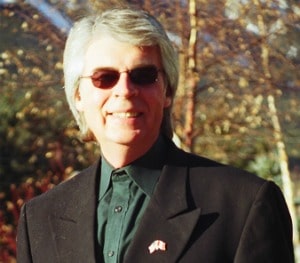
(By Ronald Robinson) First off, my apologies to Bobby for using his good name as “click bait.” But, his circumstance is still consistent with my linguistic propositions as they apply to those personalities who have the benefit of working in an ensemble environment. Bobby’s “bones” are, of course, made.
Before introducing our subject, we young students in Miss Tesky’s Speech Class always made it a point to molest the first dangling preposition to which we were confronted. We would say something like: “The topic I have chosen to speak on is: ‘Vicarious Association.’”
Public Speaking, by the way, for almost all the kids, including myself, was a prime, projectile-vomiting opportunity of which many of us took full advantage. (I used to suffer terribly from that very phobia, but that’s a separate, exciting and revealing story, especially for a radio/TV guy.)
As to the subtly identified “Bobby Bones Advantage”:
During his radio show, Bobby enjoys the company of a colorful bunch of talented ne’er-do-wells every time he hits the air. Those marvelous personalities are bantering back & forth with each other on a continuous basis. Regular listeners know who these folks are and are ready for whatever comes out next.
Now, here is a kicker: Very seldom do the personalities direct their comments to anybody in the audience. They are mostly speaking to each other! As the premise applies to the audience, we can, pretty much, forget about assuming any one-to-one communications with an unknown member of that audience are taking place.
As any regular readers can confirm, I have been ranting about how radio works best as an indirect medium. When Bobby and the folks are communicating with each other, the audience is picking everything up by processing what they are hearing — indirectly — with nobody in the audience being reached directly. This process is called “Vicarious Association.”
Every other morning show with multiple performers bouncing off or falling all over each other also enjoys the vicarious association phenomenon, knowingly or not. It is still unlikely they exploit the situation with the many linguistic distinctions that are available to them, for the benefit of audiences, for the benefit of each other, and for the overall benefit of the show.
Yet, I am still required to acknowledge that a massive dose of multiple radio talents on the same show does tend to overwhelm any needs to address the annoying, linguistic distinctions I have been promoting here. But then, Big Shows still cost big bucks.
The breakdown of the indirect approach becomes much more critical when a single performer is on the air, voice tracked or “live” in other day parts. Those are the poor devils that are hung out to dry while bearing the burdens of the vaunted and required one-to-one mandate. Applying the traditional direct process on the air cripples the single communicator and assaults every member of an audience — and it infects everything about a performer’s communications. And it is pervasive.
Radio’s alert pal, Bob McCurdy, a grand broadcast thinker with Beasley’s sales department, is continually providing reams of material to assist other sales executives with their marketing and positioning endeavors. Programmers, talent, and copywriters, on the other hand, are left in the lurch either to fend for themselves or, more abjectly, do what they are told. Anybody chewing at the edges of taking on any form of “live & local” is urged to reconsider.
Most senior on-air staff and all new hires have yet to be equipped to, not only handle the greater responsibilities of being on the air more often and for longer periods, they are also missing the skills to be more effective.
Bobby and his boys ‘n’ girls have been provided with what every radio show needs — big bundles of shared talent and acquired skills. Those radio outfits engaging at this level are to be commended. The rest, for whatever reasons, can’t or won’t replicate the strategy. This is not as a result of a lack of imagination or character, but rather a result of having some grasp on fiscal realities and the potential of risks that have yet to be fully calculated.
Besides, the guy is a hoofer. He can dance! Advantage: Bobby!
Ronald T. Robinson has been involved in Canadian radio since the ’60s as a performer, writer and coach, and has trained and certified as a personal counselor. Email him at [email protected]





